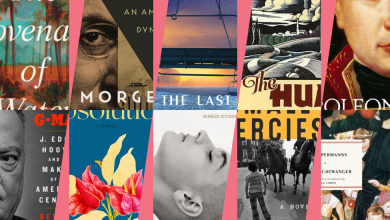At Venice Biennale, Israel’s Show Is Halted, but Protests Go On

The Israel pavilion at the Venice Biennale is closed this year, since its creative team decided not to exhibit work until there was a cease-fire and hostage deal in Gaza, but it was nonetheless the site of a large demonstration on Wednesday that drew more than 100 protesters.
“Viva, viva Palestina!” the protesters chanted as they marched through the gardens where much of the Biennale takes place. The protest was organized by a mix of artists involved in the Biennale and activists not affiliated with the event. “We gather as arts workers to refuse silence,” one demonstrator shouted to a crowd of onlookers.
Tensions surfaced in February, when activist groups began calling on the Biennale to ban Israel from the event over its conduct of the war in Gaza. Since the Oct. 7 Hamas-led attacks in Israel, in which Israeli officials said about 1,200 people were killed and 240 taken hostage, and Israel’s campaign in Gaza, which the authorities there say has killed more than 33,000 people, protests have rippled through the art world.
The Biennale’s organizers and Italy’s government affirmed Israel’s right to participate this year, but when the media preview began on Tuesday, visitors to the pavilion found the doors locked. Ruth Patir, the artist chosen to represent Israel at the Biennale, had refused to open her exhibition, posting a sign on the window that the pavilion would remain shut until “a cease-fire and hostage release agreement is reached.”
But Patir’s action was not enough to calm the discontent among many artists at the event, which opens to the public on Saturday. During the preview week, attendance is restricted to art world figures, including artists, curators, gallerists and critics.
“I think it is the right place to make a protest,” said Maj Hasager, the rector of the Malmo Art Academy in Sweden, who watched the protest. “We need to lay out the different positions, and there is no Palestine pavilion,” she added.





